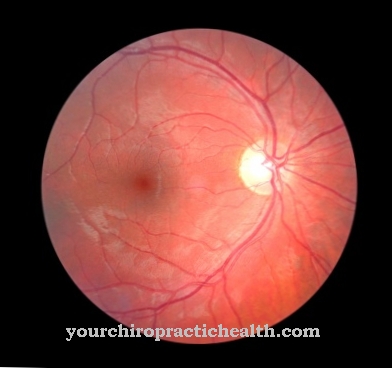A interest is based on the cognitively strong participation in and the emotionally positive evaluation of certain activities, objects or people. Interests interact with attention and are controlled in the brain, especially by the frontal lobe and the limbic system. In apathy there is no longer any interest in the outside world.
What's the interest?

Interest controls a person's attention. It corresponds to the cognitive concern that is shown towards a thing or person. The level of participation correlates with the level of interest. Disinterest can increase to pathological apathy.
In psychology, interest is a multi-dimensional construct. The interests are defined by concrete objects, as areas of knowledge or in certain activity classes. The degree of interest in a certain thing or another person is in turn defined by the subjective appreciation in each individual case. This positive appreciation is mostly related to the intensity of the positively emotionally experienced states in connection with a certain person, activity or a certain object.
For educational psychology, interest is a result of the motivational, emotional and cognitive connection between a certain person and an object, an activity or another person. The interest in getting to know new things and being open to many things can be stimulated in childhood. If the parents enable the child to have many experiences, the child is on average more interested in continuing to have diverse experiences.
The formation of interests involves specifically human cognitive abilities, which neurophysiologically are primarily located in the frontal lobe and, in addition, primarily affect the brain areas for emotions and emotional processing.
Function & task
Every interest has a strong emotional connotation for the individual. This emotional connotation is predominantly positive and thus linked to positive experiences based on personal experience. Interest also plays a role in the arbitrary part of attention and automatic patterns of perception. Human perception is selective. It emphasizes certain stimuli from the environment and weakens others or even filters them out.
The most important filters of perception include a person's emotional connection and interests. Before the incoming stimuli are processed, these filters are used to decide which of them are relevant enough for processing. For this reason, for example, even the smallest beetle enters the consciousness of people with a great interest in animals. People with a less pronounced interest in animals would see this beetle, but not consciously perceive it because of the automatic filter function of the perception.
From a neuroscientific perspective, interests and the attentiveness linked to them play a central role in the work of the central nervous system. Neurophysiologically, what defines the ego and specifically human cognition is primarily located in the frontal lobe. In addition, the reticular formation in the brain stem and the thalamus play a role in generating interest and attention.
The right hemisphere also regulates general alertness. The left hemisphere of the brain produces specific concentration activities, as they occur in connection with a certain interest. The limbic system is the “feeling system”, the almond kernels of which play a decisive role in the emotional evaluation and are therefore also relevant for interests.
Interests arise primarily through executive functions that correspond to higher-order mental processes. This includes, for example, the arbitrary directing of attention, as it is primarily controlled in the frontal lobe. The frontal lobe in turn has a close connection to all other brain regions. Since the personality is also located in this area of the brain, certain interests can arise here based on the character. The limbic system as the emotional center and the mirror neuron system as the basis of empathy towards other people contribute to this.The same applies to motivational neurotransmitters that activate the body's own reward system and the hippocampus, which is active as a news detector and thus, for example, evaluates what is interesting at all.
Psychology differentiates between situationally newly arising interest after the situational reception of a stimulus and actual interest that is aroused due to an already existing individual interest. Permanent and constant interests of a person can be explained using various psychological interest models. A well-known model is Holland's RIASEC model.
You can find your medication here
➔ Medicines against tiredness and weaknessIllnesses & ailments
Interests are largely based on the excitability of attention and the emotional involvement and assessment ability of situations. All of this occurs on the basis of stored human experiences. In medical practice, apathy describes a general indifference, a lack of excitability and an insensitivity to stimuli from the external environment. Apathy can be a result of various neurological diseases. Advanced dementia in particular manifests itself in increasing apathy. For Alzheimer's, the prevalence of apathy is around 60 percent. Vascular dementia is associated with apathy in more than 70 percent of cases. Frontotemporal dementia causes the frontal brain to lose its function. For this reason, this type of dementia is associated with apathy in more than 90 percent of all cases.
In addition, apathy can also be symptomatic of mental illnesses. With depression, the patient hardly feels the environment any more. If there is such insensitivity to external stimuli, there can be no more interests. Because one of the basic elements of interests is the emotional positive evaluation. Physical causes for such a connection can be brain injuries, inflammation, degeneration or, in extreme cases, tumors in the limbic system.
Even when the projection paths of the limbic system are no longer functional, the interest in the outside world and the general ability to form interests decrease. The same applies to frontal brain syndrome, as it can occur in the context of various infectious diseases. Apathy can be accompanied by symptoms of loss of appetite, depression and drowsiness or changes in character and judgment.












.jpg)



.jpg)










.jpg)
